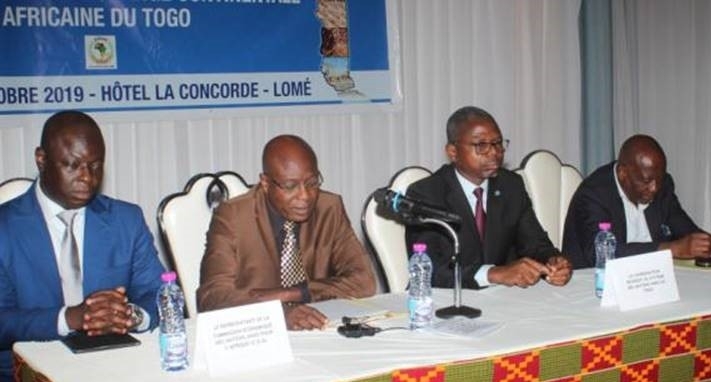Togo sets seven strategic action points for implementing AfCFTA
Togo is actively working towards strengthening its institutional mechanisms to ensure a successful implementation of the African Continental Free Trade Area (AfCFTA).

October 24, 2019: Togo is actively working towards strengthening its institutional mechanisms to ensure a successful implementation of the African Continental Free Trade Area (AfCFTA), as outlined in its national AfCFTA implementation strategy. The strategy was presented for discussion and validation in Lomé to public and private sector representatives.
The validation workshop was part of a broader awareness-raising program, which included consultations on the AfCFTA initiated by the Togolese government with the support of the Economic Commission for Africa (ECA) and the African Union (AU). It provided an opportunity for approximately 100 key economic actors to discuss the actions to be taken to ensure Togo benefits from intra-African trade. It also shed light on issues in priority sectors for the Togolese economy, as well as ways to promote the development of regional value chains.
The exchanges highlighted the significant contribution of the agricultural sector to Togo’s economy, which, with 40 percent of GDP in 2018, is reflected in the list of products designated by the country’s strategy to be promoted for exportation. Cocoa, palm oil, mango, pineapple, cashew nut, shea butter, soybean, coffee, and coconut are among these products, as well as crafts (bags, shoes, traditional textiles) and minerals (phosphates and iron). For the services sector, the focus was on transport, post, and communications.
The validation workshop also clarified the respective roles of the public sector, the private sector and development partners in implementing the AfCFTA in Togo. The strategy supports the establishment of a dedicated AfCFTA committee to help the private sector to identify new markets on the African continent. The importance of communicating the benefits of the free trade area to all Togolese is also among the recommendations of this workshop.
Action points
| 1. | Significant increase of Togolese exports to Africa |
| 2. | Improving the competitiveness of export products and services |
| 3. | Capacity building of the export initiative |
| 4. | Improved legal and institutional frameworks |
| 5. | Significant reduction of production costs to companies |
| 6. | Promoting the participation of women and the informal sector in intra-regional trade |
| 7. | Establishment of a monitoring and evaluation system capable of ensuring management and implementation. |
The AfCFTA implementation strategy will be amended with the contributions of workshop participants before being submitted to the Togolese authorities. Additional sensitisation workshops Togo are planned outside Lomé as early as November and will be supported by ECA.


